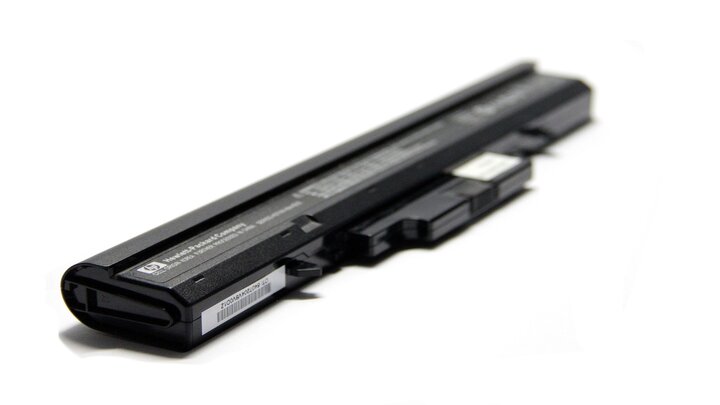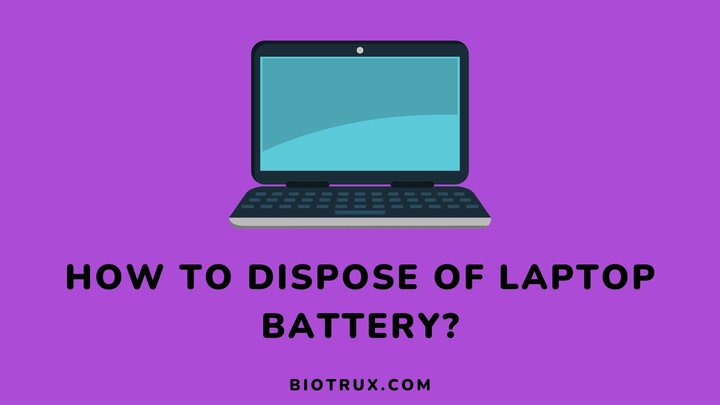Laptop batteries naturally degrade. When deterioration reaches the highest level, such a battery often fails to hold a charge and must be properly disposed of. Sadly, only a handful of people know how to dispose of a laptop battery.
When a battery can no longer power a laptop without an external current, you don’t just throw it inside your regular trash can or anywhere. This is because these batteries contain a high proportion of lithium, which is toxic to the environment and green matter.
In some countries, improper disposal of laptops or their batteries leads to paying fines. Hence, it will do you a lot of good to learn how to dispose of a laptop battery.
I will walk you through the entire process in this guide, expose you to things you should do before the disposal, and explain why proper disposal of laptop batteries is essential.
4 Things to Do Before Disposing of a Laptop Battery
Before disposing of a laptop battery, you should:
- Confirm if the battery is truly dead or damaged. The best way to confirm this is to consult an expert.
- Upon confirmation, detach the battery from the laptop by opening the clips under it.
- Seal both ends of the dead battery and place it in a closed bag to prevent leakage.
- Then choose any of the disposal options in the next section.
Best Ways to Dispose of a Laptop Battery

Throwing a damaged laptop battery in your trash can is not a safe way to get rid of it. This is because their primary component (lithium) is very reactive and can be toxic to green life under certain conditions.
To avoid this, let’s go through the best and safest ways to discard a completely dead or damaged laptop battery:
1. Opt for brand recycling programs
Most brands have special battery recycling programs for their laptops and batteries. This is because they know the risks and dangers of not disposing of them appropriately.
These programs are designed for you or your business to reach out to the closest recycling site near you. You can then take the battery there or ask them to come for it.
Depending on your choice, the manufacturer’s recycling process can cost you a few bucks. However, one good thing about them is the constant reminder they send you regarding the various disposal options you have for your laptop battery.
In addition, not just laptops offer this service. Major electronics brands do too.
2. Local recycling station
If for some reason, your laptop’s manufacturer recycling site is very far away or not reachable, you can always opt for local recycling stations.
They are more reliable, just that they do not come with benefits like a discount on replacement (warranty-based) and will not provide updates on your device battery.
To locate the nearest center to you, go to Google and type “recycling center near me” in the search bar. It will provide options for safely disposing of your laptop battery or any electronics.
3. Battery Banks
Aside from local recycling centers, using battery banks is another appropriate way to dispose of not just laptop batteries but batteries in general.
These banks are strategically positioned in places with high traffic or population congestion, like supermarkets and gyms. Hence, they make it easy for you to dispose of your dead battery without disrupting your daily routine.
Why Do Laptop Batteries Have to Be Disposed of Properly?
The rechargeable battery in laptops is chiefly made of lithium–a very reactive element. This is why it is important not to throw them in any trash can and risk a fire or explosion.
Aside from that, it is a habit you must embrace to:
Keep the environment safe
Lithium is toxic to the environment. If a laptop battery fluid (majorly containing lithium) comes in contact with water bodies or food, they become poisonous to humans, animals, and plants.
When you dispose of a laptop battery properly, you eradicate this risk and keep your environment (including its inhabitants) safe.
Help with preservation and conservation
When you get rid of a damaged laptop battery using a recycling bank or center. They undergo several processes that make them ideal for further use, such as manufacturing new electronics.
Avoid fines and other disciplinary sanctions
Some countries have serious regulations against improper disposal of toxic devices like laptops and batteries. You don’t have to face these hefty fines when you dispose of them appropriately.
FAQs
Does putting the laptop battery in the freezer work?
Putting a laptop battery in a freezer will not charge or improve its performance. It is not recommended to put batteries in the freezer for any reason.
How long do laptop batteries last?
Laptop batteries average about 2 to 4 years. Their longevity also depends on the mAh, the degree of use, and the battery’s content.
What should you do with your laptop before disposing of it?
Before properly disposing of your laptop, you should safely back up all sensitive information before erasing them.
Conclusion
Laptop batteries have one thing in common—lithium. While this element may not be radioactive, it can be very toxic to humans, animals, and plants. Food or water contaminated with lithium may result in nausea, loss of appetite, vomiting, and muscle spasms in humans and animals.
In plants, lithium may influence stunted growth as it is capable of contaminating the soil. Another risk of inappropriate disposal is an explosion. The only way to avoid these dangerous consequences is to dispose of your laptop battery appropriately.
Electronic brands and government bodies have made this easy by providing an array of battery recycling centers and banks. As long as obedience is not a problem, everyone will be safe.
I hope you found this guide helpful. Perhaps you would be interested in knowing how to tell if your laptop battery will soon need a replacement; please see the guide on how to identify the battery cycle counts.
Thanks for reading.

